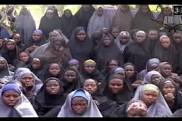
JANUARY 8, 2017 marked the passage of 1,000 days of what has become the most infamous mass abduction of the new millennium – the seizure, on April 14, 2014, of 276 female students of Government Girls’ Secondary School, Chibok, Borno State, by Boko Haram insurgents.
It has been nearly three years of parental grief and communal anguish, worldwide horror and global solidarity, unremitting protests, unfulfilled promises, false alarms, dashed hopes and tentative joy.
In a terror campaign already disfigured by the bombings of churches, markets and other public places, the abduction and murder of civilians and students, as well as the massive displacement of citizens, the Chibok kidnappings stand out for the sheer outrageousness of their execution. In circumstances that are yet to be fully explained, Boko Haram terrorists were able to reach the school, round up dozens of female students, set fire to the buildings and escape. They achieved this in spite of alleged forewarnings, a heavy military presence in the state, and the obvious logistics challenges inherent in such an operation.
The inexplicably poor military response was compounded by unforgivable tardiness on the part of the Jonathan administration. which wasted precious time denying that anything had happened; reacting formally only on May 4, nearly three weeks after the kidnappings had taken place.
This set the tone for the missteps that were to follow. Security officials echoed the disgraceful assertion that nobody had been kidnapped, and challenged the school authorities and the Borno State government to provide proof. The military authorities kept tantalising an anxious nation with reports of sightings that ultimately led nowhere. A host of self-appointed negotiators came out of the woodwork with dubious tales of negotiations with the insurgents, leavened with unproven allegations of collusion with Boko Haram at the highest levels of government.
Perhaps the only truly positive occurrence in the traumatic weeks after the Chibok kidnappings was the emergence of the #BringBackOurGirls (BBOG) group. Led by Aisha Yesufu, Hadiza Bala Usman and Oby Ezekwesili, among others, BBOG transcended ethnicity, religion and political affiliation to coalesce into a formidable pressure group that has kept the issue on the front burner of national discourse. Along with the Nobel Laureate, Malala Yousafzai, BBOG has awakened consciences nationally and globally, and shamed governments and security agencies into redoubling their efforts to rescue the kidnapped girls.
The Buhari administration has, to its credit, built upon the reinvigorated military campaign against the insurgents initiated by its predecessor late in 2014. Territory has been recaptured, the insurgents’ Sambisa Forest stronghold has fallen, and internally-displaced persons are gradually returning to the homes they fled.
An important aspect of these military successes has been the rescue of some of the kidnapped girls. Apart from those who managed to flee on the night of their abduction and the isolated reappearances of about six more, the most significant development was the freeing of 21 of them in October last year, apparently after secret negotiations with the insurgents.
In spite of this, about 195 girls are still believed to be in the clutches of Boko Haram. In addition to alleviating the agony of their parents, friends and relatives, there is the unavoidable fact that victory in the anti-insurgency campaign would ultimately be hollow if a substantial majority of these girls are not recovered. It would amount to a betrayal of the most fundamental duty of protection that government owes its citizens.
The Federal Government must assiduously pursue all leads in ensuring that it rescues as many of the abducted girls of GGSS Chibok as possible. Military successes can be used as a bargaining chip in negotiations with the rebels; neighbouring countries should be brought into the search; friendly nations should avail Nigeria of relevant surveillance technology; the demands of BBOG must be listened to with greater attention.
It is sincerely to be hoped that 2017 will mark the last time that Nigeria and the world will have to mark such an agonising anniversary.
END

Be the first to comment